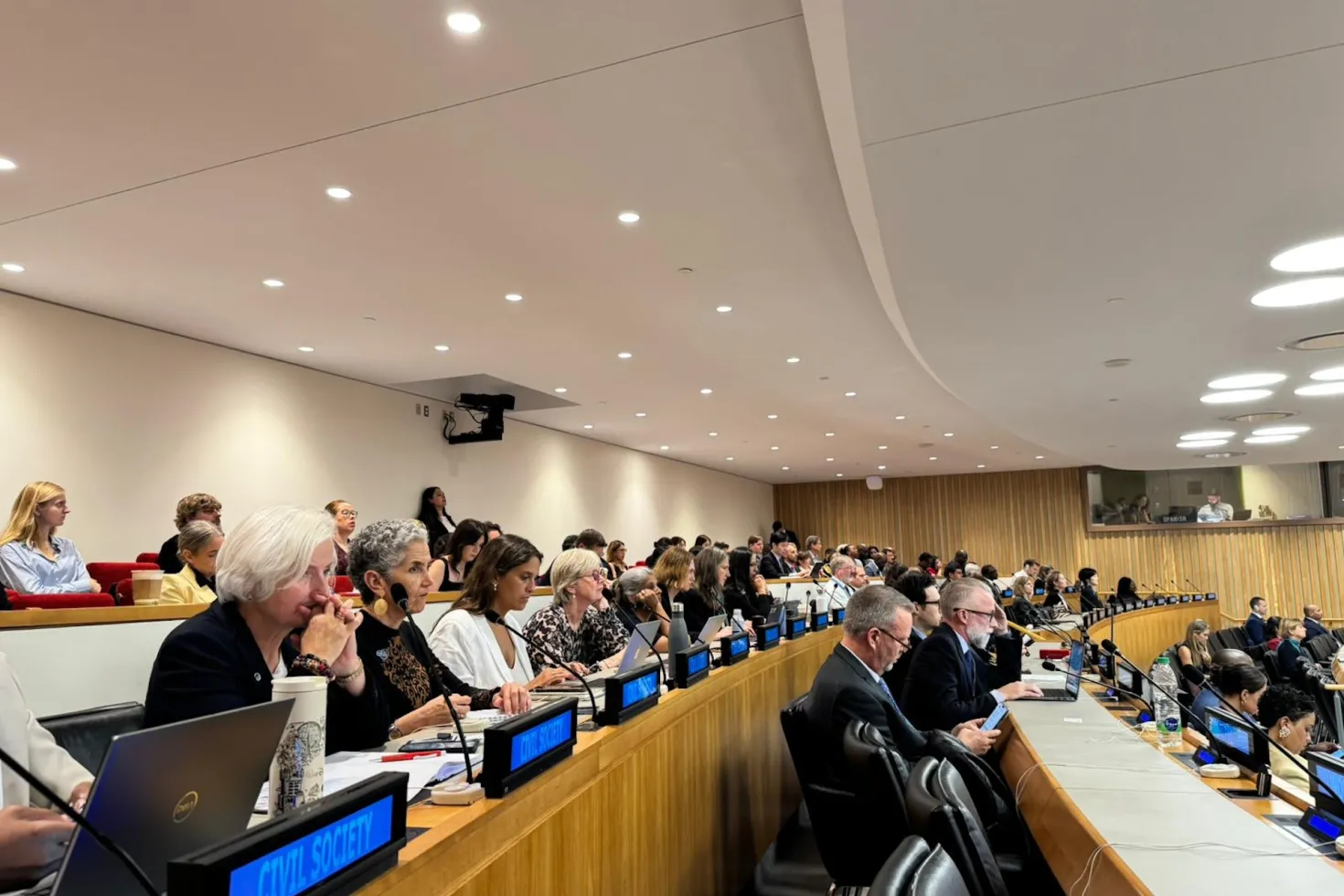UN political declaration on NCDs maintains commitments for cancer but weakens prevention
With strong endorsement from Member States at the UN high-level meeting last week in New York, the declaration sets a path to 2030 for cancer and other NCDs, despite weakened fiscal and regulatory measures aimed at prevention. Read more about the key targets and the trade-offs.

HIGHLIGHTS
-
Member States reaffirmed support for eliminating cervical cancer, boosting childhood cancer survival to 60% by 2030, and expanding access to diagnostics and treatment.
-
New targets include cutting liver cancer deaths, integrating breast cancer into national plans, and curbing antimicrobial resistance in cancer care.
-
Civil society groups, including UICC, pushed for stronger prevention measures, but proposed taxation measures and WHO-recommended interventions to better address risk factors were watered down.
-
The declaration will guide policies on noncommunicable diseases until 2030, with implementation now seen as the crucial next step.
UN Member States met last week to discuss and voice their support for a new political declaration on noncommunicable diseases and mental health, the fourth since 2011, following months of negotiation. NCDs collectively account for over 43 million deaths annually, including nearly 10 million from cancer.
UICC was pleased to confirm that existing pledges — such as eliminating cervical cancer, raising childhood cancer survival, and expanding access to essential diagnostics and treatment — had been safeguarded.
In the lead-up to the meeting, UICC provided materials to support its members seeking to advocate with their governments during the negotiations. It also worked closely with the NCD Alliance, McCabe Centre for Law and Cancer, World Cancer Research Fund International, and other members of the UICC’s global network of advocates, to coordinate advocacy directly with government representatives in New York and Geneva.
Governments notably recommitted to cervical cancer elimination by expanding vaccination against the human papillomavirus (HPV) and access to screening and early, quality treatment – key actions outlined by the World Health Organization (WHO). Alongside this, governments also integrated the global goal of raising childhood cancer survival rates to at least 60% by 2030, in line with the Global Initiative for Childhood Cancer.
The declaration also calls on governments to reduce liver cancer deaths through hepatitis B vaccination and treatment, to integrate breast cancer into national health programmes, and to safeguard cancer treatment against the effects of antimicrobial resistance.
"The agreement by governments to develop operational, multisectoral, and integrated national action plans on NCDs and mental health by 2030 marks a significant step forward. These strategies, including national cancer control plans, create valuable opportunities for cancer organisations to collaborate with governments in setting priorities, with evidence from WHO showing that countries with such plans achieve better outcomes for cancer and other noncommunicable diseases.”
– Cary Adams, CEO of UICC
Other targets for 2030 included in the political declaration:
- 150 million fewer tobacco users
- 150 million more people with controlled hypertension
- 150 million more people with access to mental health services
Prevention, the most cost-effective means to reduce cancer death
UICC regrets, however, that stronger commitments on prevention were not included or were diluted.
Nearly half of all cancer deaths are a result of modifiable risk factors, yet a draft proposal that at least 80% of countries introduce excise taxes on tobacco, alcohol, and sugar-sweetened beverages was removed. Instead, governments are now only encouraged to “consider” such measures.
Language on implementing WHO’s ‘Best Buys’ — cost-effective interventions such as advertising bans, warning labels, and restrictions on unhealthy food marketing — was also softened. Fiscal measures as well as these interventions have proven effective in reducing the consumption and use of these unhealthy products known to cause cancer.
Civil society organisations, including UICC, had urged governments to adopt stronger measures, stressing that prevention is essential if NCD targets are to be met. Member States diverged on fiscal and regulatory approaches, however, with commercial interests at times playing a visible role in the debate.
“While the political declaration keeps important commitments for cancer care and sets new targets for NCDs, what matters now is how we work together to make these goals real. Progress will come from practical steps and honest collaboration, not just words.”
– Ulrika Årehed Kågström, President of UICC and Secretary-General of the Swedish Cancer Society
The political declaration will now guide UN reporting on NCD progress through to 2030, with the next high-level meeting set for 2031. While the final outcome represents continuity rather than new ambitions, it provides a framework that governments can build on.
For UICC and its members, the challenge is ensuring that Member States move beyond commitments on paper to implementing concrete measures that strengthen prevention, expand access, and protect people living with cancer from financial hardship.
While the vast majority of Member States expressed their support for the declaration, the United States and Argentina voiced objections. As per usual practice, the Declaration will move forward to be discussed by the General Assembly in November, and will likely be adopted by vote.
Last update
Wednesday 01 October 2025
